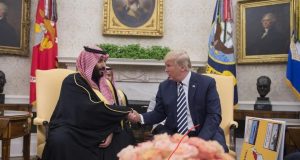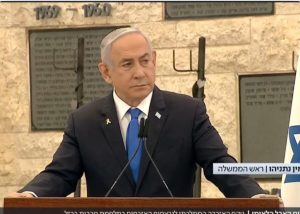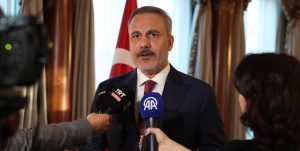
King Salman Bin Abdul Aziz
(Photo: saudiembassy)" width="215" height="300" /> King Salman Bin Abdul Aziz (Photo: saudiembassy)Riyadh, 6 Rabi’ul Akhir 1436/27 January 2015 (MINA) – The turmoil hitting Saudi Arabia’s neighbour Yemen will pose the first big test for King Salman Bin Abdul Aziz, and provide a glimpse as to whether his approach to hotspots in a fragmenting region will differ from that of his late brother.
Yemen is at risk of breaking up with the ascent of the Al Houthi militia, a group whose main strategic alliance is with Riyadh’s great regional foe Iran, in a country also home to Al Qaida’s most active affiliate.
In that respect, Yemen reflects what has happened across the Middle East, with Tehran’s allies dominating war-torn Iraq and Syria, and Saudi Arabia attempting to back groups without bolstering its enemies, Gulfnews quoted by Mi’raj Islamic News Agency (MINA) as reporting.
Under King Abdullah Bin Abdul Aziz, Saudi Arabia constructed a dual-track regional policy of attempting to contain Iranian influence which it saw as an ideological threat.
Also Read: Syria, Jordan Condemn Netanyahu’s Visit to Occupied Syrian Buffer Zone
That does not look likely to change, although the arrival of a younger man may make for a more active approach, possibly including a new effort to reach out and engage local players in Yemen, analysts say.
Foreign policy in Saudi Arabia is a team job for the clique of ruling princes, even though it is the king who has the ultimate say. Salman was an integral part of Abdullah’s team, and he brings many of the same princes into his own.
“They are not going to get involved in a quagmire. I don’t think there will be major change. It’s about containment,” said a Saudi close to policymakers.
However, the fact that he is 11 years younger than Abdullah, and able to give more direct attention to the big issues, may mean Saudi policy will become more proactive, particularly in Yemen, where there have been years of quiet disengagement.
Also Read: UNIFIL Reports Over 7,300 Israeli Violations of Lebanese Airspace Since Ceasefire
“I think they’re going to go to Yemen with open eyes and will try to contact all parties in the crisis and not exclude anyone,” said Mustafa Al Ani, a security expert with close ties to the kingdom’s Interior Ministry.
Riyadh is constructing a tough series of border defences to insulate itself from its turbulent neighbour and has cut off funding to Sana’a, hoping that will eventually persuade Yemen’s new rulers to compromise.
Sunday editions of the main Saudi newspapers ran at more than triple length, as companies bought full-page adverts to express their condolences for the late Abdullah and allegiance to King Salman and his two designated heirs.
Both Crown Prince Muqrin, who was intelligence chief from 2005-12 and whose mother was Yemeni, and Deputy Crown Prince Mohammad Bin Nayef, who is Interior Minister, have been closely involved in Saudi Arabia’s Yemen policy.
Also Read: Russia Condemns UN Gaza Resolution, Says It Contradicts Palestinian Statehood
It is Prince Mohammad, whose main focus is on assuring the kingdom’s domestic security, who has been most prominent in shaping its Yemen policy in recent years, working closely with Sana’a against Al Qaida, but also strengthening border defences.
“The Saudis are looking for a real partner. They are very, very confused,” said a source close to Yemen’s government, adding that they would not support any government that the Al Houthis shared in.
A more proactive Yemen policy might mean reaching out to former leader Ali Abdullah Saleh and the Islah party, erstwhile allies of Riyadh but whose unreliable track record and ties to the Muslim Brotherhood later became anathema to Abdullah.
Salman may feel less worried about Islah, which beside the Brotherhood is also tied to tribal players and street leaders of the 2011 uprising, and may consequently adjust Riyadh’s attitude towards it as one potential partner in Yemen, say analysts.
Also Read: Israeli Airstrike on Palestinian Refugee Camp in Lebanon Kills 13
Any change in attitude towards Islah would be closely watched by Egypt, where President Abdul Fattah Al Sissi has ruthlessly crushed the Brotherhood with the vocal encouragement of Abdullah and still seeks Saudi economic support.
However, Riyadh views Yemeni politics as distinct from those of the wider region, so its behaviour towards Islah or the Al Houthis might not reflect wider stances towards the Brotherhood or Iran.
“I don’t think their policy towards Yemen is reflective of their policy towards the world. It’s their back yard and very particularistic and idiosyncratic,” said Bernard Haykel, professor of near-east studies at Princeton.
There seems little chance that the region-wide tussle for power with Iran will abate, despite brief visits by its Foreign Minister Mohammad Javad Zarif on Friday and Saturday for Abdullah’s funeral and the formal paying of respects.(T/P009/R03)
Also Read: UN Security Council Adopts US-backed Resolution to Deploy International Force in Gaza
Mi’raj Islamic News Agency (MINA)
Also Read: UNIFIL Condemns Israeli Tank Fire Targeting Peacekeepers in South Lebanon


































 Mina Indonesia
Mina Indonesia Mina Arabic
Mina Arabic